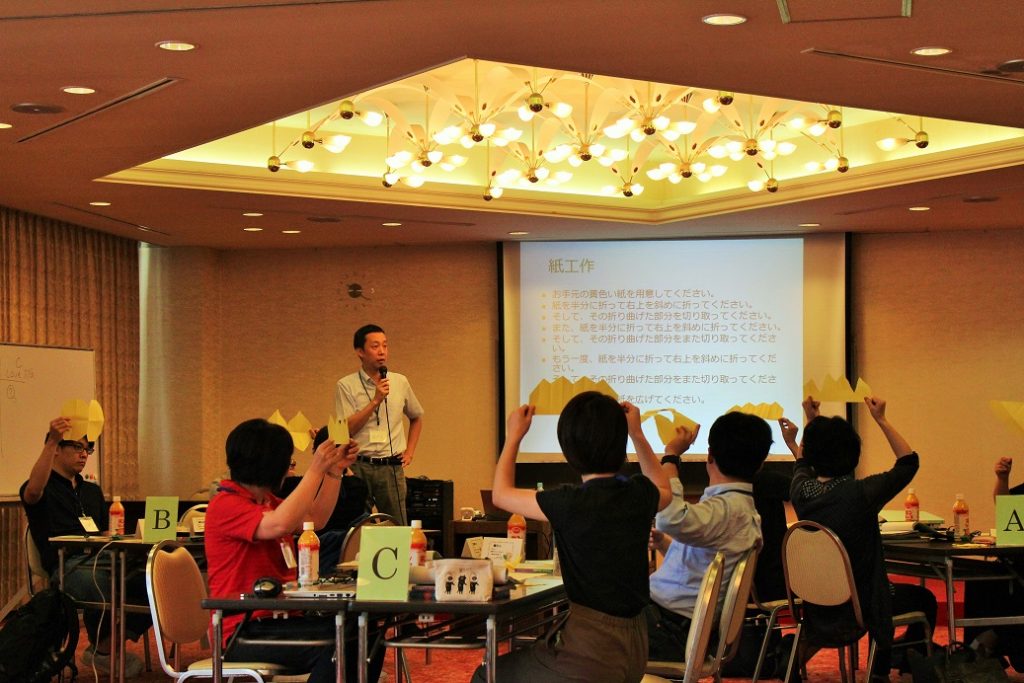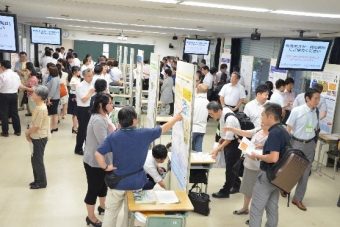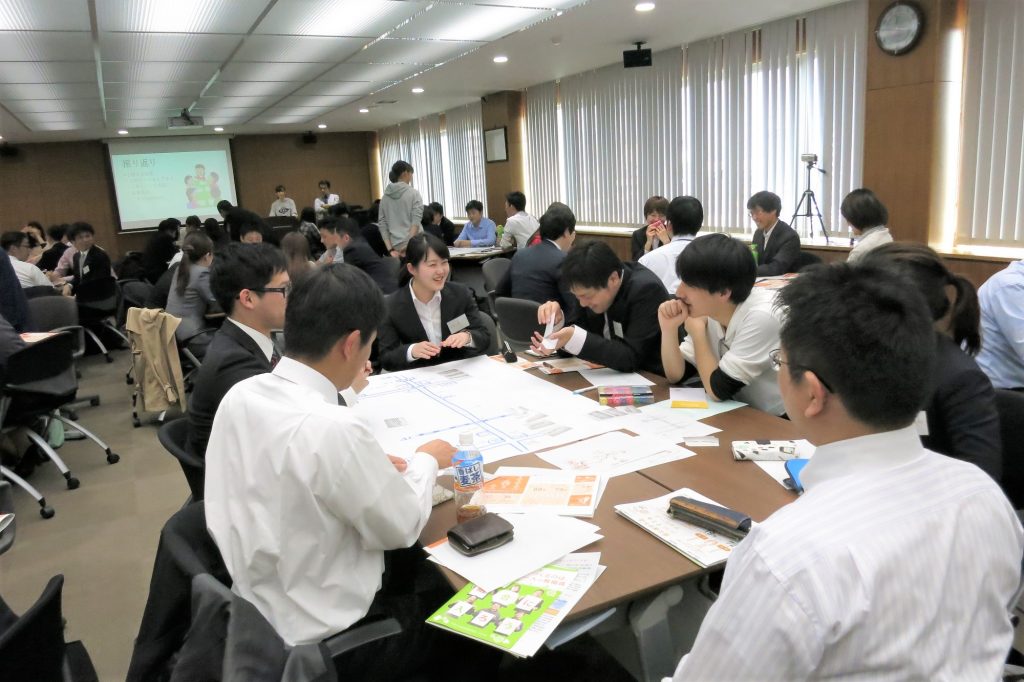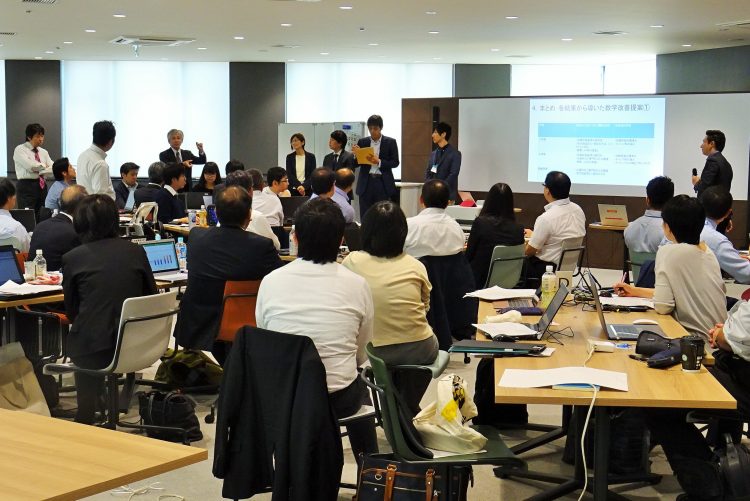Faculty and Staff Development (SD/FD)
In order to realize the principles set forth in the Ehime University Charter, faculty and staff development is essential. Faculty and staff development is referred to as SD (staff development) and FD (faculty development). Faculty development not only leads to the development of Ehime University, but also makes the workplace a place where faculty members can feel satisfaction and pride in their work, which in turn leads to the enrichment of their own lives.
Ehime University has been leading other universities in the development of faculty and staff skills. In recognition of its achievements, the Office for Educational Planning And Research has been certified by the Minister of Education, Culture, Sports, Science and Technology as a Joint Usage Center for Educational Resources (Center for Faculty Capacity Building). In addition, as the representative school of the Shikoku Regional Network for Faculty and Staff Development (SPOD), we promote capacity development for faculty and staff at universities and colleges of technology in Shikoku.
Based on Ehime University’s past SD and FD practices and the definitions of SD and FD in the Standards for the Establishment of Universities, Ehime University defines SD and FD. The definitions shown below were approved at the Council for Education and Research meeting held in February 2019. Under these definitions, Ehime University will enhance its SD and FD activities and their support systems in order to realize the University’s philosophy as set forth in the Ehime University Charter.
Definition of SD and major initiatives at Ehime University
Definition.
A generic term for organized efforts to develop the abilities of all faculty and staff, including the Executive Committee, at each stage of their careers, with the aim of realizing the principles of education, research, social contribution, and university administration set forth in Ehime University’s Charter, as well as individual self-realization (excluding the FD efforts described in 2. above).
Main Initiatives
Training for new faculty and staff
Staff portfolio creation workshop
How to obtain external research funding
Researcher ethics
Human rights training
SD skill improvement course
IRer training
Administrative staff training
Top leader training
Next generation leader training seminar
Support for participation in external training and promotion of personnel exchange with other institutions
Definition of FD at Ehime University and main initiatives
Definition.
A generic term for systematic efforts to improve classes, curriculum, and educational and student support systems and reforms, with the aim of realizing the educational philosophy set forth in Ehime University’s Charter.
Main Initiatives
Workshop for new faculty members
Class design workshop
Teaching portfolio creation workshop
Implementation of class consultation
Class observation by faculty members and colleagues
Class observation by mentors
Analysis, disclosure, and improvement of class evaluation questionnaires and various surveys
Implementation of curriculum consultation
FDer training course/IRer training course/curriculum coordinator training course
Establishment of Education Coordinator Council and consideration of its role and authority
Ehime University Educational Reform Promotion Project ( Ehime UniversityEducational Reform GP) Symposium

FD Map
The Office for Educational Planning And Research at Ehime University offers a rich and diverse array of faculty development programs and services. These various programs and services are organized in the university-wide capacity development system chart (FD Map). Each faculty member can learn the necessary content at the necessary stage according to his/her own career and abilities. Ehime University’s FD Map uses the FD Map framework created by the FDer Study Group of the National Institute for Educational Policy Research.
The Joint Usage Center System for Education was established to promote the joint use of human and material resources of each university in order to provide high-quality education that meets the diversifying needs of society and students. In March 2010, the Office for Educational Planning And Research of the Institute of Education and Student Support was accredited by the Minister of Education, Culture, Sports, Science and Technology as a Joint Usage Center for Educational Resources (Center for Faculty Capacity Development). Since then, the Center has been reaccredited three times in recognition of its achievements and the ripple effect it has had on other universities, and is now in its fourth term, which began in April 2025. The fourth phase of the center aims to expand its efforts nationwide with the goal of “realizing faculty and staff capacity development that leads to behavioral change and organizational development,” rather than viewing faculty and staff capacity development as mere individual learning.
In order to further promote the development of newly hired faculty members and other early career faculty members, MEXT offers a multifaceted faculty development program, which is divided into three areas: (1) teaching capacity development, (2) research capacity development, and (3) management capacity development. Newly hired faculty members are required to attend a total of 100 hours of the program during the first three years of the tenure faculty development period (70 hours or more for tenure development faculty hired through an open recruitment process that started on or after April 1, 2024). In addition, the program is eligible for priority financial support. The program enhances the education and research environment, promotes independence as university faculty members, and ensures their quality through comprehensive performance evaluations.
Ehime University is working on systematic educational reforms to enhance the quality of education. Representative examples are the educational coordinator system, which promotes educational reforms by organically linking the entire university, and the Ehime University Educational Reform Promotion Program, which allocates educational expenses to excellent educational reform programs. These efforts are also linked to the development of faculty members’ abilities.
The “Vision for Administrative Staff Personnel and Human Resource Development” aims to build a personnel management system that will enable administrative staff, in particular, to enhance their ability to contribute to the operation of the University, achieve their ideal work-life balance, and fully demonstrate their abilities.
In addition, we aim to develop human resources who can contribute to the achievement of the organization’s goals by setting the “required staff image” at the University.
The Shikoku Network for the Development of University Faculty and Staff (SPOD) is comprised of national, public and private universities, junior colleges (including universities with some faculties located in Shikoku) and colleges of technology in the Shikoku region. The SPOD Forum, held annually since 2009, offers a variety of SD and FD programs that can be utilized in the workplace and classroom, and is attended by many faculty members outside of the Shikoku region. Many faculty members from outside the Shikoku region also participate.




